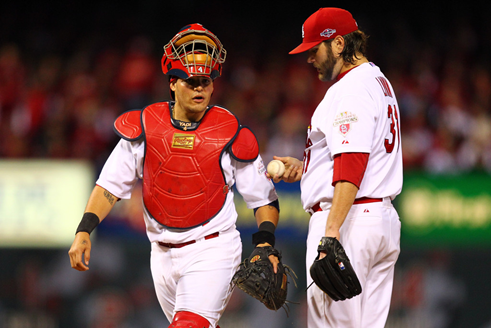|
When should a catcher go to the mound? By: Coach McCreary Provided By - www.baseballbytheyard.com At the major league level you will often see catchers call time-out and take a trip to the mound to have a word with their pitcher. Usually these trips are not called for by coaches. The catchers decide when the time is right. At the lower levels, catchers are
 usually hesitant to call time-out and take a trip. Some catchers never do it unless told to by their coaches. There are lots of benefits to the catcher deciding for himself to take a trip out to the mound. It also can help coaches because a catcher is not charged with a visit like a coach would be. Because of their vantage point, catchers can also notice things more quickly than coaches and can therefore address them immediately before they get out of hand. The pitcher/catcher on-the-field relationship needs to be a strong one. Communication between the two is key and that should include quick trips to the mound by the catcher during the game. The question now becomes “When should a catcher go to the mound?” Below is a list of times that I feel should warrant a trip. Two quick outs. When a pitcher gets two quick outs in an inning, a catcher should remind a pitcher that the inning is not over. He should tell him to bear down and go right after the next hitter. Good hitter / base open. Especially with two outs, a catcher should remind a pitcher to pitch tough with first base open. Walking the guy isn’t a problem because a worse hitter is up next. Temper. If a pitcher shows signs that he is/has lost his composure, have a chat to settle him down. Don’t let him pitch angry. Hurt umpire. If the umpire gets hit with a wild pitch or foul ball, always take a slow trip to the mound and talk to your pitcher. This gives the umpire a minute to regroup. He will LOVE you for it. As I stated in some of the examples, trips do not have to be the long, drawn out walk to the mound which helps turn the game into a 3+ hour event. A quick word after a out on your way back to home plate can have an enormous positive effect on your pitcher’s performance. However, it all starts with a catcher’s realization that doing all this, and taking it upon himself to do it without being told, is a necessary part of being a good catcher. |
|
|







